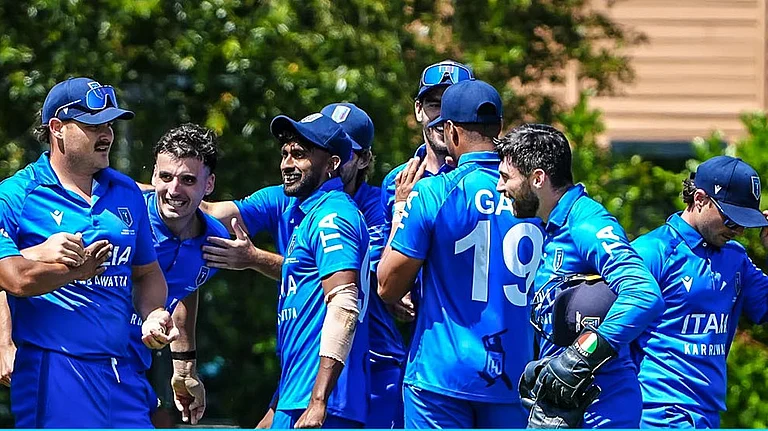If it weren't so serious, Fiji's 'civilian coup' would be dismissed as a childish prank. The gun-toting hoodlums who stormed the island nation's parliament and put prime minister Mahendra Chaudhry and his cabinet under confinement have the support of important elements in its armed forces and political establishment. Who cares if George Speight, the coup leader, is a failed businessman and a crook facing judicial investigation for fraud and other crimes?
Until Chaudhry became its prime minister last year, Fiji was ruled by a small and corrupt political coterie of indigenous Fijians. Sitiveni Rabuka was the country's prime minister, having staged the first military coup in 1987. Subsequently, he became Fiji's civilian prime minister until losing the election to Chaudhry.
It is interesting that the two prominent political personalities from the 1987 coup era are now deeply involved in 'resolving' the present crisis. The country's president, Ratu Sir Kamisese Mara, was the prime minister who lost the 1987 election. That had brought in Dr Bavadra's government. Its majority ethnic Indian composition triggered the Rabuka coup, and led to his 13-year rule.
Even after losing last year's election, Rabuka remains a powerful political figure as chairman of the Great Council of Chiefs, a parallel government of sorts overseeing the interests of indigenous Fijians. Chaudhry was an ex-officio member of the council by virtue of being prime minister. His presence was deeply resented by this closed shop, used to arbitrary decision-making. Besides, Chaudhry was keen to work out a fair deal for the country's Indo-Fijian tenant farmers, with their sugar plantation leases running out.
The extreme elements among indigenous Fijians are opposed to any resolution of the country's political and economic situation that will transcend its racial divide. They fear losing their clout.
Which brings us to Rabuka's role in the present crisis. The first thing that appears odd is Rabuka's ready availability to negotiate with Speight. Why would a person as important as chairman of the Great Council confer an element of legitimacy on a bunch of thugs who had kidnapped the country's popularly-elected government? He also knows the army people involved in the coup. The concerned Counter Revolutionary Warfare unit is said to feel "a special loyalty to Mr Rabuka". It would mean that Rabuka had some prior knowledge of the coup.
Even more disturbing is President Mara's validation of Rabuka's role as peace negotiator. He's sent a special envoy to the captive premier asking him to resign and said at an earlier press conference: "I can't say I'll put back the government that caused all this trouble."
And what is the new political order Fiji is awaiting? Speight wants Indo-Fijians disenfranchised. For him, they're too different: "They have their own religion, don't dress the same, don't even smell the same (and) it permeates right through the system."
The Great Council, which claims to speak for indigenous Fijians, has conceded most of his demands. Chaudhry would be forced to resign or be sacked. Otherwise, he could face execution (Chaudhry has reportedly suffered serious internal injuries from "brutal assault" by his captives). He'll be replaced by an interim government, led by an indigenous Fijian. Speight and his goons will be pardoned, the former even given a seat in the government. The process will be set in motion to change the constitution to further restrict Indo-Fijians' rights, including not allowing any Indo-Fijian to become the country's prime minister.
A surreal situation, indeed.
(Seth is a Sydney-based freelance writer.)


























